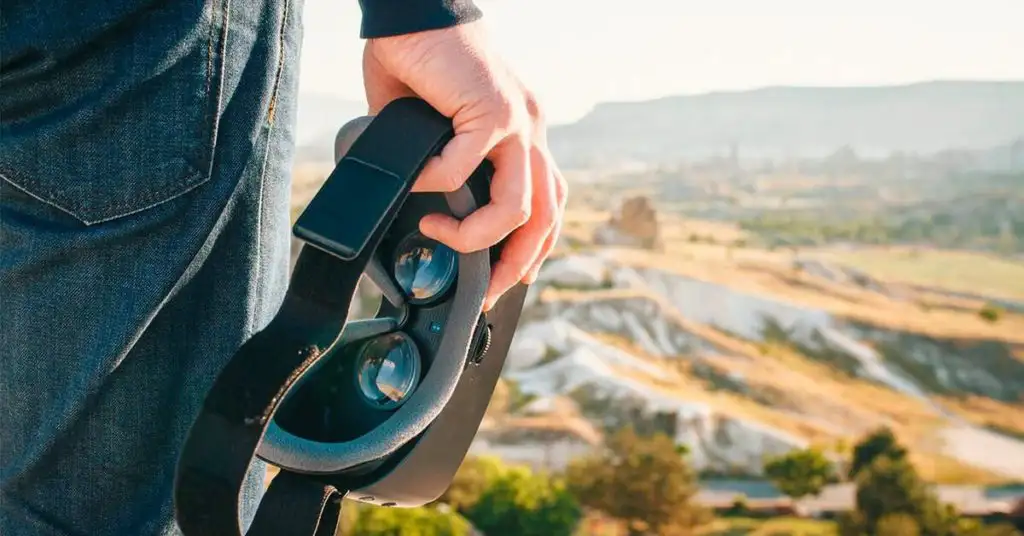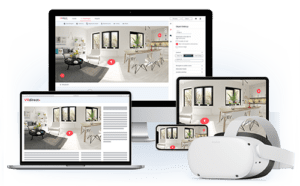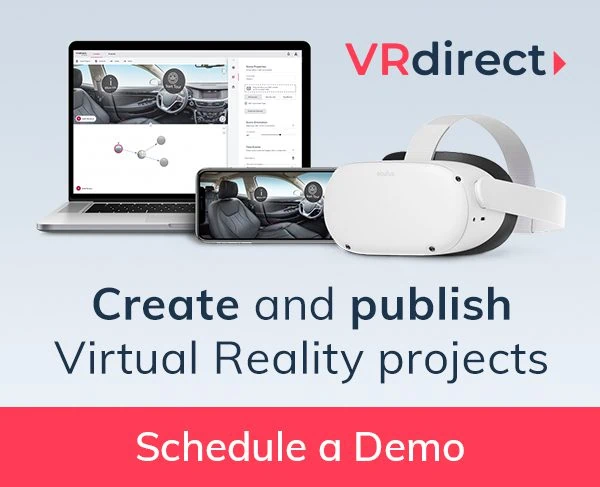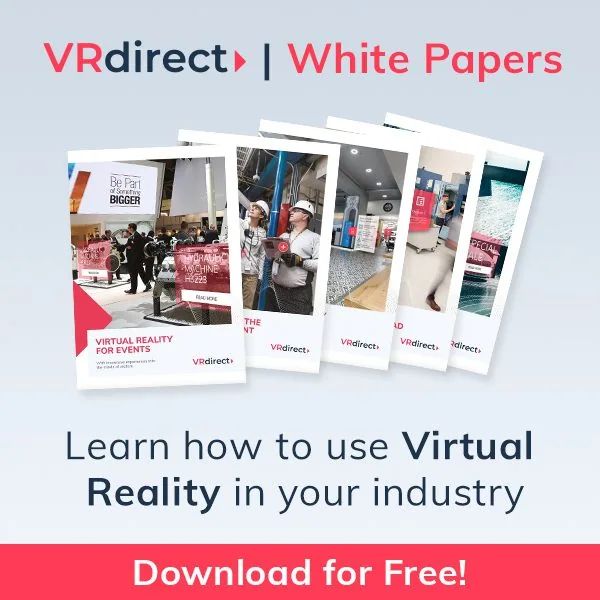The use of VR is becoming of immense importance for several industries – be it eCommerce, professional training or real estate. This leaves many companies with the challenge of creating VR content to modernize their user experience. While it may appear too difficult to do, with the right tools and platforms it no longer has to be. In this article, we will explore how to create Virtual Reality content.
What is Virtual Reality content?
Virtual Reality is the representation and simultaneous perception of reality and its physical properties in a real-time computer-generated, interactive virtual environment. Wearing a Virtual Reality headset can put a user in a new environment where they can look around themselves and interact with items. VR content can be consumed on a variety of different devices, ranging from mobile phone to PCs or VR headsets. Created by an authoring tool, the Virtual Reality content can range from six degrees of freedom to three degrees of freedom and much more! The better the content is designed, the better the experience will be in the end.
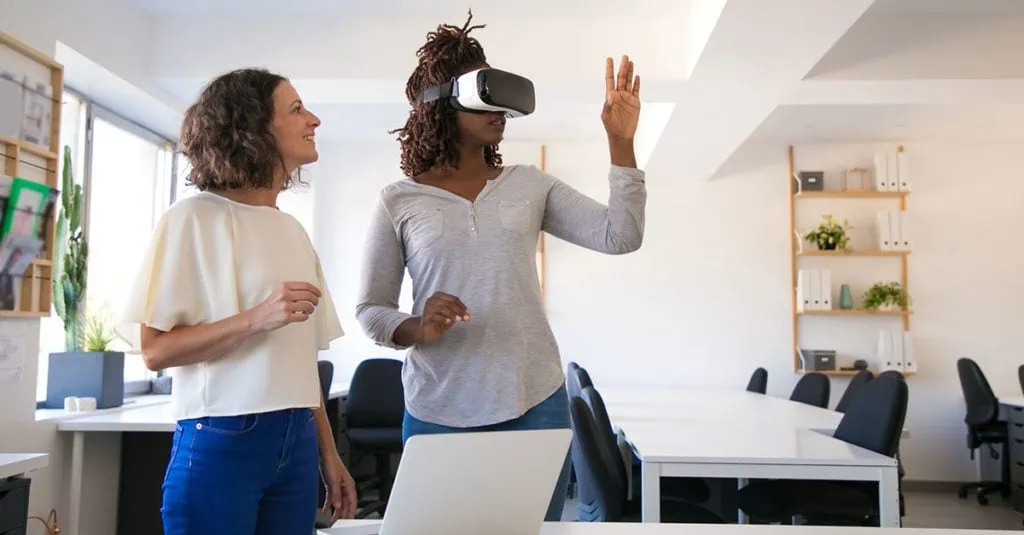
What are the technical requirements for creating Virtual Reality content?
Creating Virtual Reality experiences used to be restricted to designers and developers alone, but now with the development of user-friendly, drag-and-drop Virtual Reality building software, anyone can give it a try. Virtual Reality’s growing accessibility has increased its prominence across all industries and is nowadays integrated in many standard business processes. Thus, one should first ask certain questions before developing the content. It is essential to know how people will see that experience and what the key message is. Other questions can include budget, availability of content producers, the expertise required, etc.
If you are interested in learning how to create VR content, you can schedule a free demo with us.
Create an outline and goal
The Guide to Creating a Virtual Reality Project
10 steps from concept to creation
VR content: making 360° videos and images
To make 360° videos and images, it is essential to have a good camera that supports 360° video and image production. Commonly used cameras that have proved very effective are Ricoh Theta S and Insta360 Nano. We´ve created a complete shopping guide for you on how to choose the right camera.
After choosing the right camera, next step is shooting the content. These cameras have made shooting videos and images quite easy, and anyone can shoot them if they possess basic knowledge on operating the camera. Our guide shows you what to look out for.
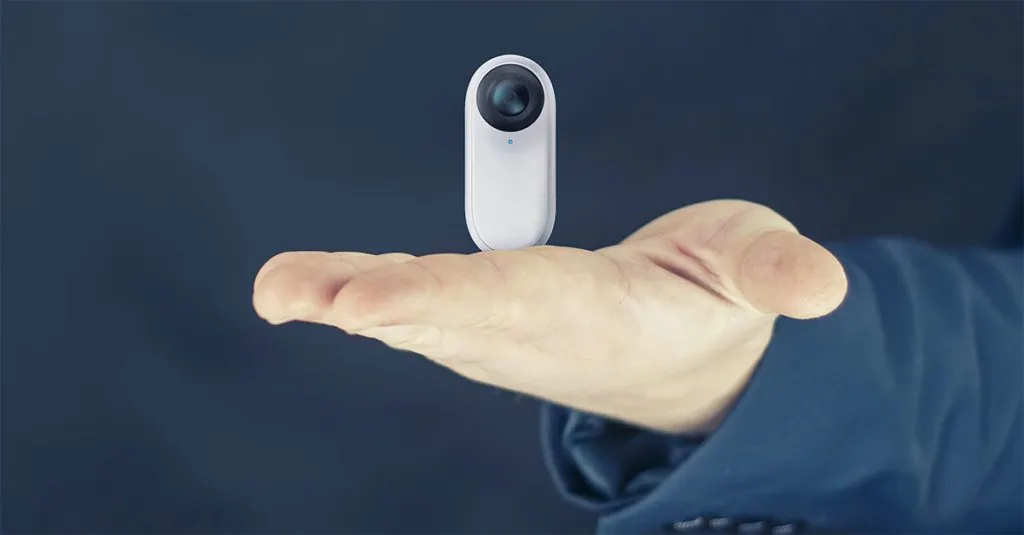
After shooting you can edit your 360° content for a professional touch. The so-called “stitching” combines the individual shots from the camera lenses to create a 360° image or video. Most 360° cameras perform stitching automatically after an image or video has been captured. Look for this feature when choosing a 360° camera. Manual stitching can get very time-consuming and therefore only recommended for professionals. You can use a professional design software for adjustments to brightness, contrast, color correction, video cutting like Adobe Photoshop, Adobe Premiere or GIMP.
If you are not able to shoot VR content by yourself there is the possibility to take 360° images and 360° videos from Bigstock, Adobe Stock or Shutterstock.
Once the content is ready, you can also add graphics, buttons, icons, text boxes to enrich the Virtual Reality content. The creation of such 2D assets can be done via common software (e.g. PowerPoint) or other graphical design programs. Find buttons, images, icons and more on the internet (Flaticon, Pixabay).
Create 3D animation
As VR technologies are becoming more predominant in health care, manufacturing, training, and education, the requirements for 3D content are mounting. If you don’t have access to 360° footage or need to create parts of your experience in 3D, a 3D creation software is an ideal way to get started. When making use of a 3D model, the 360° content must be rendered in monoscopic format from the 3D model. This can be done in a 3D software (e.g. Blender, Cinema4D or Maya).
Take a look at these 20 resources and how they help you to create an interactive VR project.
